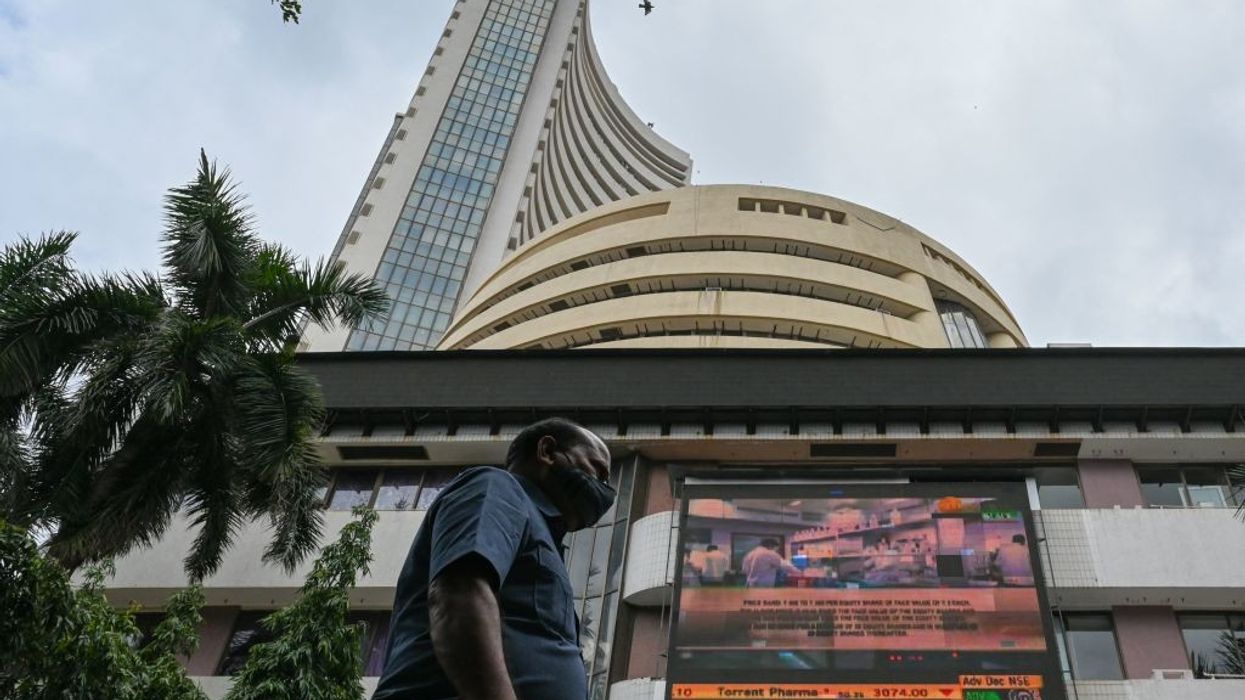INDIA’S equity benchmark BSE Sensex breached the 60,000-mark for the first time on Friday (24), led by strong gains in index majors Infosys, HDFC Bank and TCS.
The 30-share index of the Bombay Stock Exchange (BSE) gained 163.11 points or 0.27 per cent to close the day at 60,048.47, after reaching the record intraday high of 60,333.
The Sensex has climbed from the 30,000 level to 60,000 in a little over six years, reflecting the overall bullishness in the market. It rose more than six-fold from the sub-9,000 levels of 2009.
"Reaching this milestone is quite an achievement in these Covid times and a shot in the arm for bulls that are in total control of this market," said V K Vijayakumar, chief investment strategist at Geojit Financial Services.
The outperformance of India during September so far is stunning with MSCI World Index down 2.13 per cent, he said, adding that the poor performance of the Shanghai Composite due to regulatory crackdown and the China Plus One policy have again made India an attractive investment destination for foreign institutional investors (FIIs).
From hitting the 1,000-mark on July 25, 1990 to the current level, it has been a remarkable journey of a little more than 31 years for the benchmark index.
It had reached the 10,000-mark for the first time on February 6, 2006. On October 29, 2007, it scaled the 20,000 level, then on March 4, 2015, the benchmark hit the 30,000-mark.
The BSE benchmark scaled 40,000 on May 23, 2019. The 50,000-mark was reached on January 21, 2021.
Interestingly, both the 50,000 level and 60,000 mark have been breached in 2021, showing the resilience of the market amid the Covid-19 devastation.
From witnessing the Harshad Mehta scam in 1992 to blasts in Mumbai and BSE building in 1993, Kargil war (1999), terror attacks in the US and Indian Parliament (2001), Satyam scam, global financial crisis, demonetisation, PNB scam and Covid-19, markets have faced many uncertainties over the years, suggests a slide on ‘Journey of Sensex’, tweeted by BSE CEO Ashish Kumar Chauhan on Friday (24).
Several healthy triggers have also played a major role in the market uptrend, with the likes of the commodity boom in global markets, global liquidity, Covid-19 vaccine approval and rollout of the vaccination programme.
The BSE benchmark index has gained over 25 per cent so far this year.
In August this year, the stock market reached many new highs and Sensex soared over nine per cent last month.
The rally in the markets holds significance as equities had gone into a tailspin in March 2020, with the Sensex sinking a massive 8,828.8 points or 23 per cent during that month as concerns over the pandemic impact on the economy ravaged investor sentiments.
The index had gained 15.7 per cent in 2020, after facing a roller-coaster ride during the year hit by the pandemic.
"We are witnessing broad-based buying from large caps to midcaps, and small caps. The euphoria in the market is likely to continue. It may extend till January-February 2022. Though the volatility is likely to witness an uptick," said Brijesh Bhatia-Senior Research Analyst at Equitymaster.




